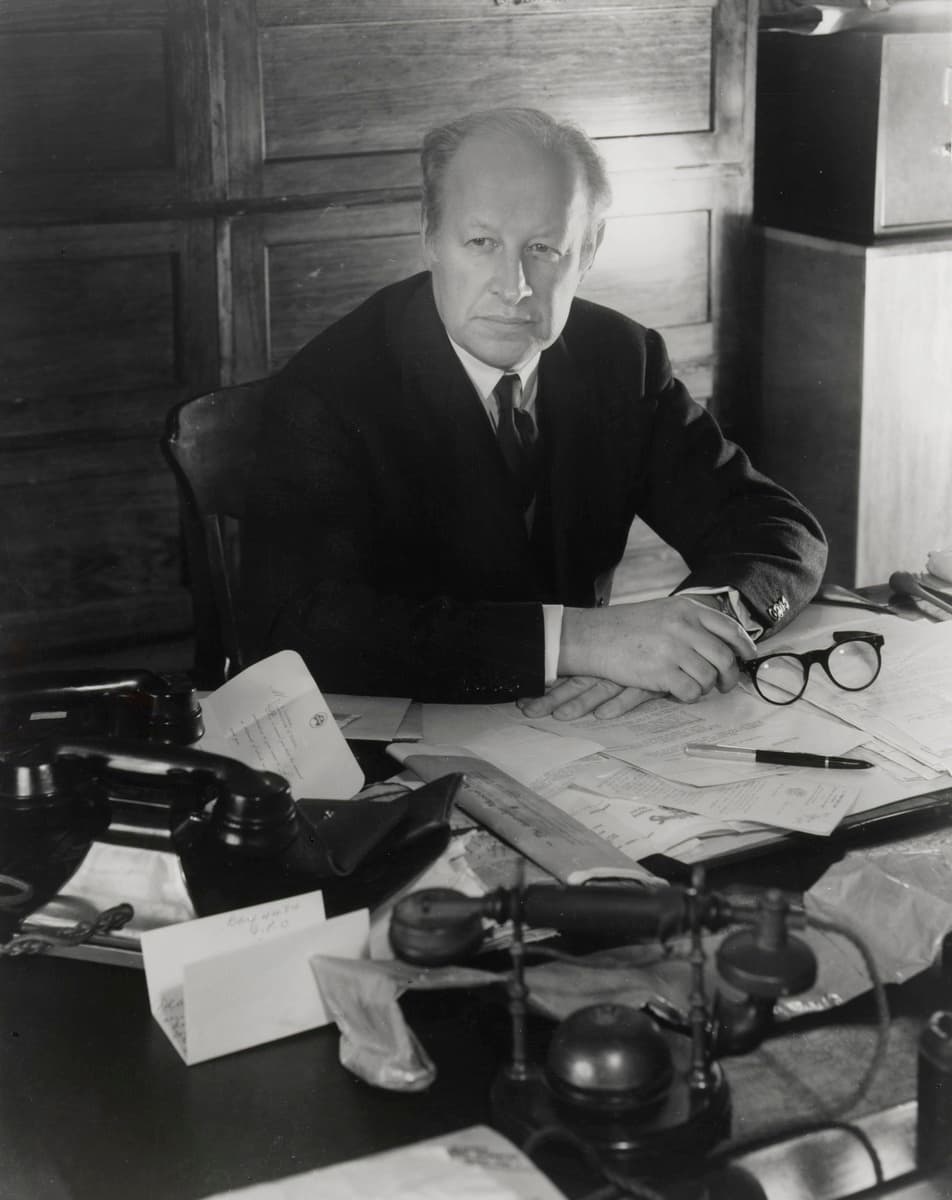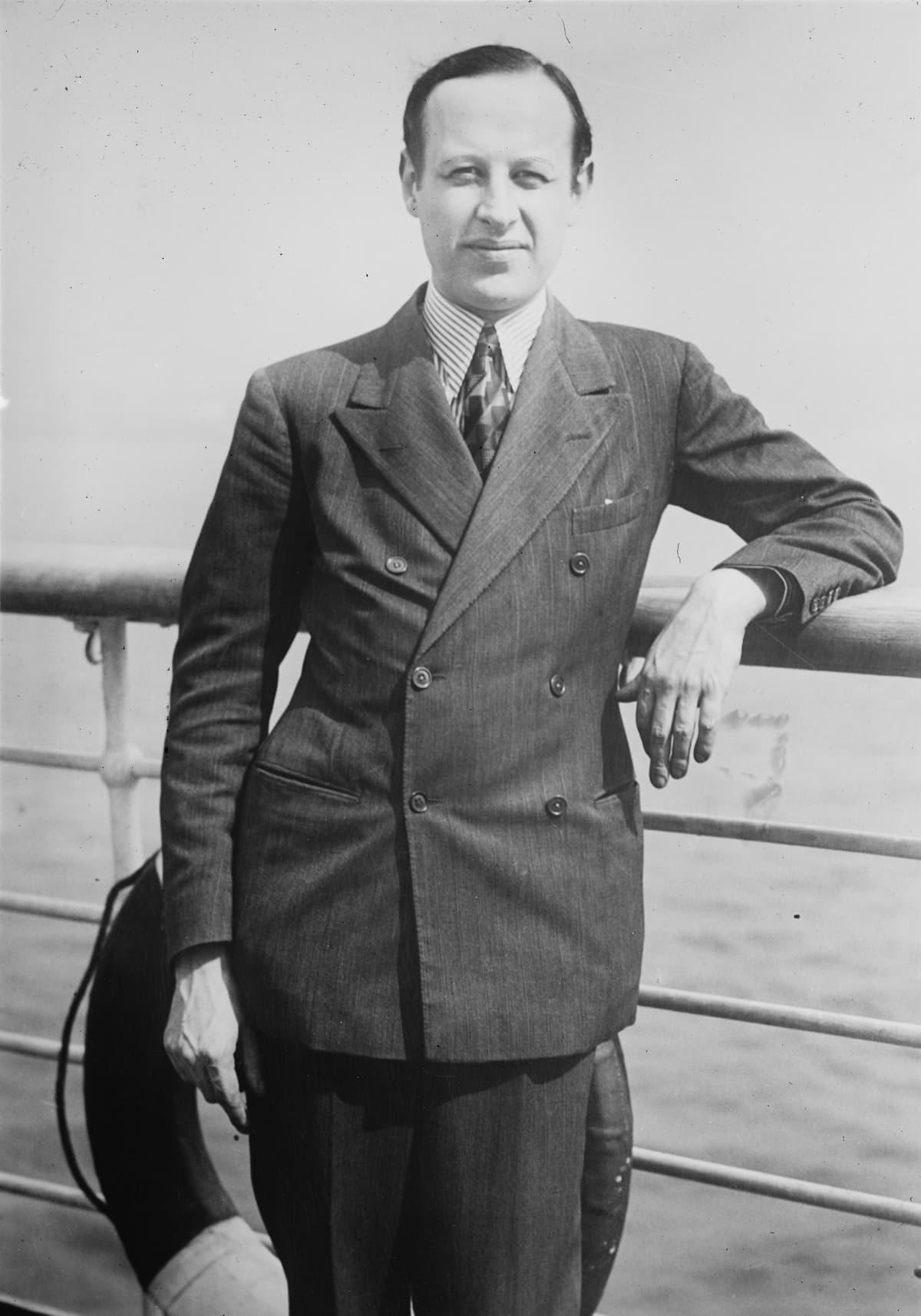Sir Eugene Goossens (1893-1962) was a member of one of the most important English musical dynasties of the 19th and 20th centuries. He started his career as a professional violinist, performing his own compositions influenced by the musical styles of Debussy and Ravel. He soon became interested in conducting, and he worked as an assistant to Sir Thomas Beecham.

Sir Eugene Goossens © National Portrait Gallery
By 1922 he conducted at Covent Garden and soon thereafter with the British National Opera Company. Goossens spent part of each year in the United States and soon achieved celebrity status. As conductor of the Cincinnati Symphony Orchestra during World War II he famously commissioned Aaron Copland’s Fanfare for the Common Man. In 1947 he moved to Australia as director of the New South Wales Conservatory and resident conductor of the Sydney Symphony Orchestra. He also initiated the founding of the famous Sydney Opera House. On his arrival in Australia, “he earned more than the prime minister,” but rumors started to circulate that he had an unusual interest in the occult.
Eugene Goossens: “Old Chinese Folksong,” Op. 4, No. 1 (Robert Gibbs, violin; Gusztav Fenyo, piano)

Eugene Goossens © Wikipedia
Apparently, customs officials at Sydney Airport intercepted his luggage in March 1956. It contained more than “1,000 pornographic photographs, films and books, along with three rubber masks.” Within a period of a couple of weeks, the ensuing scandal destroyed Goossens’ career, marriage, and reputation, and his wife even sought refuge in a French convent. At the center of the scandal was his association with Rosaleen Norton, an artist accused of conducting black masses. There seems to have been the suggestion that Goossens and Norton worshipped the Greek god Pan and engaged in orgies together. Be that as it may, Goossens left Australia in 1956 and he died in Britain six years later. The Goossens scandal has inspired a couple of plays—one of them still held up in litigation—a novel, and even an opera that suggests that his occult practices were the source of his creativity and artistic imagination. His delightful setting of an “Old Chinese Folksong” date from the early stages of his performing career, and as far as we know, it has little or nothing to do with the occult.
For more of the best in classical music, sign up for our E-Newsletter
